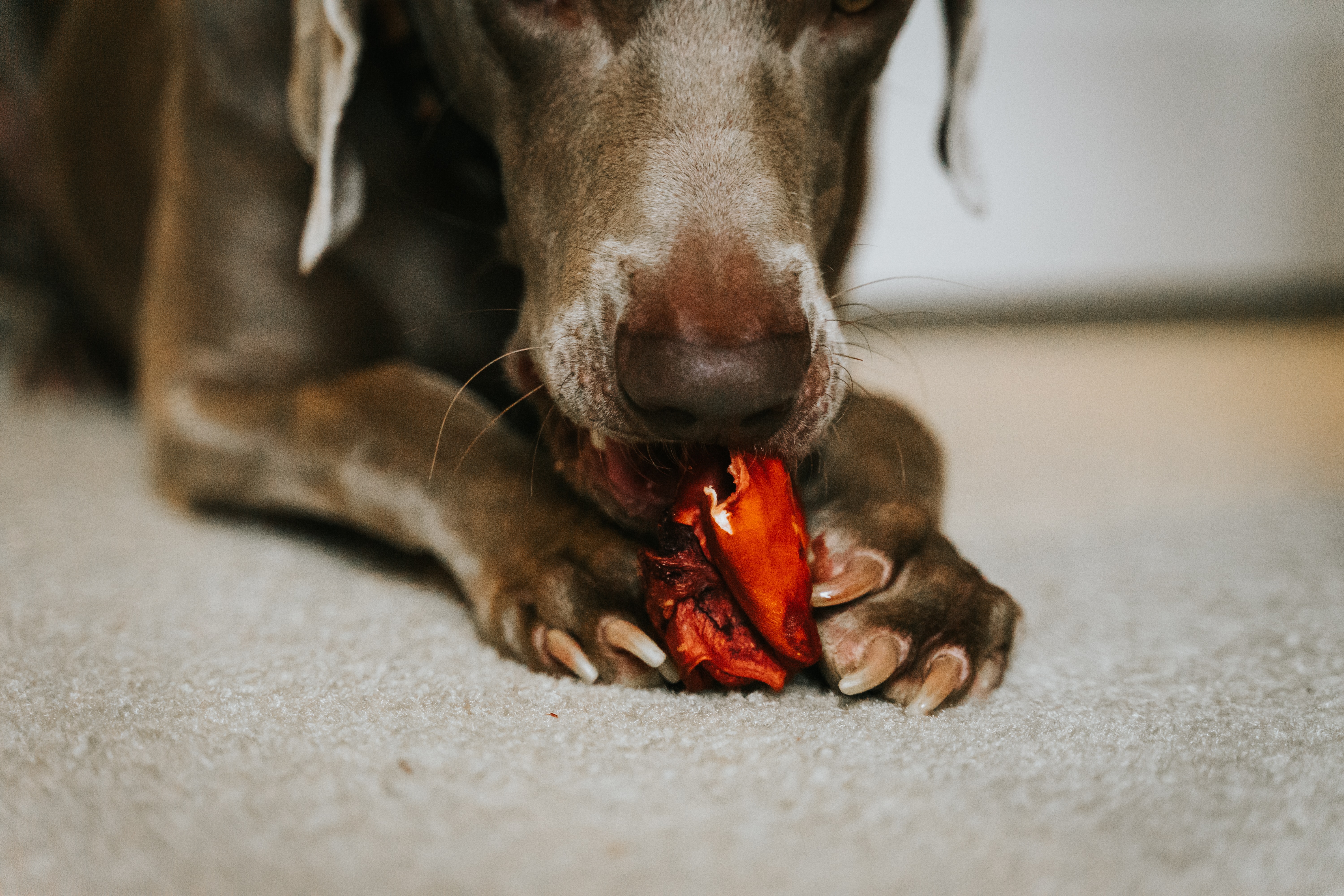When it comes to choosing a diet for our dogs, we all want to do the right thing. But it can sometimes be difficult to sort out truth from opinion – after all, it is human nature to believe that what we do for our dogs is what everyone should do. There is a lot of debate regarding grain-free diets – are they really necessary for your canine? The truth is, for the typical healthy dog, there are no proven benefits of choosing a grain-free diet over a typical one. We will discuss why in this blog.
What are Grain-free Diets?
Most dog foods contain some type of grain in the form of corn, soy, wheat, rice, barley, or other variations. Grain-free dog foods avoid these ingredients, instead using alternate plant protein to bulk up the food and provide carbohydrates that dogs need in their diets. The types of plant protein in grain-free foods include legumes – peas, lentils, chickpeas, beans – and potatoes.
Why Choose Grain-Free?
Grain-free dog food diets are a fad that was born from the gluten-free movement. The logic is there — you want to feed your dog a diet you would eat — but the science is not. By cutting grains out of the dog’s diet, the dogs are losing a major source of carbohydrates which they (and humans) need to survive. An owner might choose a grain-free diet because they assume it is lower in calories, but many grain-free diets are more calorie-dense than their counterparts.
Many people decide to utilize grain-free diets because they assume their dog is allergic to the grains. Dogs can develop allergies to certain things. Environmental allergies are very common, while food allergies are rare and are almost always due to the protein source rather than grains. You can check with your veterinarian if you think your dog may be experiencing allergies to food or anything else in their environment.
Danger of Grain-Free Diets
In the summer of 2019, the FDA released results from a study that suggested a link between grain-free food and a heart condition called dilated cardiomyopathy (DCM). This heart condition is common in some dog breeds, but the FDA began investigating when breeds not normally predisposed to this condition started to show symptoms. Golden and Labrador retrievers, whippets, Shih Tzu, bulldogs and miniature schnauzers are among those breeds that are not usually affected by DCM, and the common factor was that those patients were fed a grain-free diet. These diets can cause low levels of an amino acid called taurine, a condition known to contribute to DCM. The symptoms these dogs exhibited included “decreased energy, cough, difficulty breathing and episodes of collapse” so talk to your veterinarian if your dog has been on a grain-free diet and has those symptoms.
According to the FDA, while there is a link between grain-free diets and DCM, one does not necessarily mean the other is present. However, unless your dog truly has a grain allergy, the safest thing is to take them off of grain-free food and replace it with a traditional diet.
When Grain Free is Necessary
If your dog is required to be on a grain-free diet, there are ways to make it slightly less risky. Foods with high levels of potatoes or legumes, i.e. within the first 5-10 ingredients listed, were found to be more strongly linked to DCM. Not all brands were implicated in the FDA study, and commercial diets such as Purina are safer than novel “boutique” brands because they have been around longer and have a history of clinical trials. As in everything, if you are concerned about your dog’s diet or want to change it, talk to your veterinarian to make sure Fido is getting the nutrition he needs.
Another important aspect of your dog’s health and safety is proper training and obedience. If you are looking for a professional dog training facility in the Sarasota and Bradenton area, call Gulf Coast Dog Training Today.





